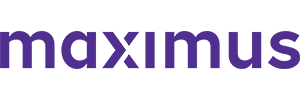To find answers to your referral process questions, call New Hampshire CAT Help Desk: 833.736.4228 or email: NHCAT@maximus.com.
FAQs
Support is available through the following channels:
- Contact by phone: 833.73 NHCAT (833.736.4228)
- Contact by email: NHCAT@maximus.com
- Cick here to access NH CAT Tools & Resources
To be added to the New Hampshire email distribution list, email a request to NHCAT@maximus.com with the subject line: “Please add my email to the NH CAT Contact List.” This communication should include your name, title, agency/facility, email address, and contact phone number.
We thank you for your patience as we address calls in the order we receive them. Our standard practice is to return them as soon as the next Help Desk agent is available, and within the same business day for calls received before 4:00 PM EST. Calls received after 4:00 PM EST will be resolved the next business day.
The independent Comprehensive Assessment for Treatment (CAT) is an assessment process by which a child, youth or young adult’s need for residential or other treatment is assessed and to determine whether/if the child or youth utilizing residential treatment has a clinical need for this intensive service.
Typical referral submitters in New Hampshire are CPSWs and JPPOs working with Division for Children, Youth and Families (DCYF), as well as staff from Hampstead Hospital and various Care Management Entities (CMEs). Referrals can also be sent in from community mental health centers, schools or other facilities.
You should first fill out the Comprehensive Assessment Treatment (CAT) Referral Form, available on the NH CAT Tools and Resources page. DCYF staff can access the NH CAT Referral form directly from the Bridges system in the workload screen when initiating a referral. Information on the following should also be gathered to be included with the referral:
- Case Plans, Transition Service Plans, Plan of Care, Treatment Plans
- Recent psychiatric and/or psychological assessments
- Any prior CANS evaluations completed for the child
- IEPs
- Court or legal records
Maximus has a 14-day expedited contractual turnaround when a child is in a psychiatric hospital, is detained or committed by the court, or has DCYF involvement and has already admitted to a residential treatment program that is a Qualified Residential Treatment Program (QRTP). Non-expedited referrals will take up to 30 days to ensure all natural and formal supports involved are contacted. Maximus is currently meeting and exceeding the requirements in other states where we do this work.
If the individual is not involved with DCYF and is deemed eligible for residential treatment, Maximus will provide referrals to the CME for Transitional Residential (and Psychiatric) enhanced care.
Yes. Each team should assess their community resources and what could be put in place to support the child and family in the home prior to using residential treatment if it is safe and appropriate to do so. This report provides a recommendation of a level of care and eligibility, not a requirement.
PRTF is a psychiatric residential treatment facility. In the context of the CAT Services program, the State of New Hampshire distinguishes PRTF as a higher level of care (Level 5) than each of the QRTP levels of care (CAT Levels 2-4). A PRTF provides the residential treatment outside of an acute hospital within a medical model of treatment with oversight by a psychiatrist.
Qualified Residential Treatment Programs are a new designation of non-family-based placements that serve children with specific treatment needs who require short-term placement out of their home. In NH, residential programs designated as Level 2, Level 3, and Level 4 all meet the requirements to be a QRTP. These requirements include:
- Being accredited (through COA, JCAHO, CARF, etc.)
- Having a trauma-informed model of care
- Having access to licensed nursing staff and other licensed clinical staff to
- provide care 24/7
- Facilitating family participation in treatment when appropriate
- Providing aftercare support for 6 months post discharge
As indicated above, in NH PRTFs are considered a higher level of care that can meet a higher intensity of behavioral health needs within a medical model of treatment.

